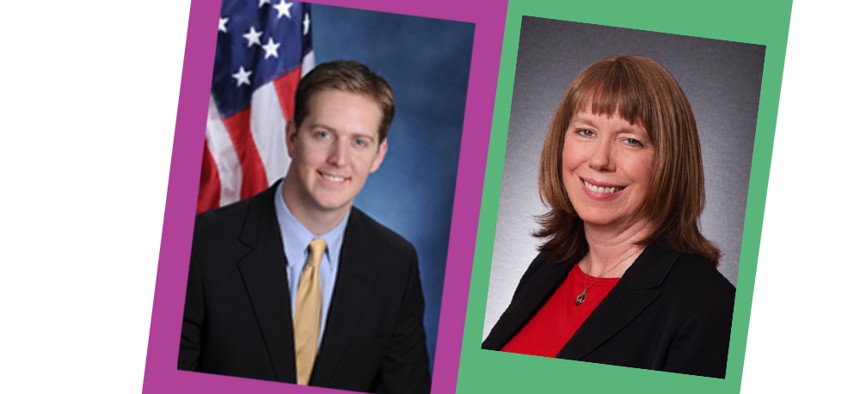More people need to understand Adverse Childhood Experiences
Our communities, our counties, and indeed our state and country will be stronger if we all focus less on the negative impacts of trauma and concentrate instead on building resilience and giving these children the chance to succeed.

Andrew Hevesi and Jenn O’Connor Andrew Hevesi and Jenn O’Connor
Policy makers and the citizens of New York state need to acknowledge and then begin addressing the impact of adverse childhood experiences for the children who experience them – as well as the direct societal consequences for all of us.
Trauma, adverse childhood experiences, executive function – maybe you’re familiar with these terms. Maybe you’re not. But odds are you know or have heard about a child with behavioral challenges. Or there is an adult in your life who struggles with addiction, keeping a job, or maintaining a healthy relationship.
Maybe you saw Oprah on television recently, talking about childhood trauma. Or the writer Junot Diaz disclosing that he is a survivor of childhood sexual abuse. You have almost certainly seen the headlines – over 65,000 children are abused or neglected each year in New York state alone. That’s enough to fill Madison Square Garden more than three times.
Will all of those children with adverse childhood experiences become as successful as Winfrey and Diaz, in spite of experiencing traumatic events? Maybe not. But what is important to understand is that any child has the potential for success, if they are seen through the lens of “What’s strong about you?” instead of, “What’s wrong with you?”
Adverse Childhood Experiences (ACEs) are those traumatic events that shape how we look at the world. They include abuse and neglect, parental substance abuse, parental mental illness, and domestic violence among others.
ACEs impact our executive function – the skills we use to move forward in the world – including how we process information, organize our lives, and handle conflict. We are not defined or doomed by our ACEs. But acknowledging that we have them, and that we have the ability to mitigate their effects, is helpful in navigating the world we live in and hope to succeed in.
There is mounting empirical data that proves that children who have ACEs, and the resulting executive function deficits, are exponentially more likely to have difficulty in school, become addicted to various substances, end up in the criminal justice system, become reliant on public assistance, and have their own kids who will experience ACEs. This is a generational cycle that costs taxpayers billions of dollars every year. We must change the way we view ACEs and how we address them.
To that end, this legislative session, we are moving to pass a bill that would mandate ACEs training for domestic violence shelter staff. This is only a first step. We will also, slowly and carefully, begin to consider how to provide every adult who comes into contact with a child in a professional setting, from teachers to child care providers to law enforcement, training in recognizing ACEs and providing children and their families the tools they need to succeed despite these experiences.
Imagine fewer children abused and neglected by parents whose own childhood trauma has gone undiagnosed and ignored.
Our communities, our counties, and indeed our state and country will be stronger if we all focus less on the negative impacts of trauma and concentrate instead on building resilience and giving these children the chance to succeed. We will have a more productive workforce, a healthier populace, more successful residents, and a huge reduction in costs for taxpayers. It is a strategy worth considering